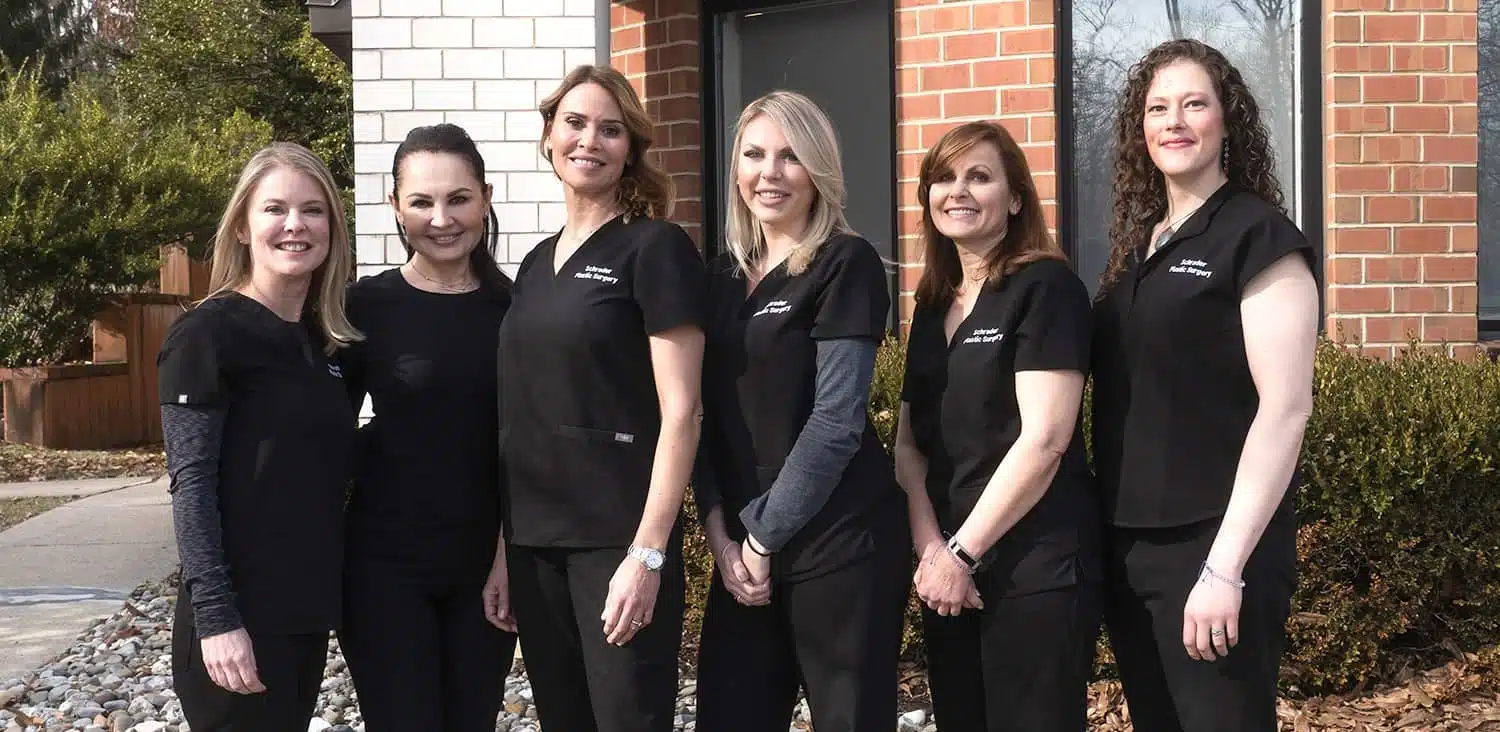Neck lifts, also known as platysmaplasty, tighten neck skin and muscles. Recovery is essential for best results and a smooth healing process. This article discusses neck lift recovery elements and six techniques to speed up healing.

Factors That Affect Neck Lift Recovery
The neck lift recovery process can be influenced by several things, such as the patient’s overall health, age, and adherence to post-operative care instructions. The extent of the surgical procedure, patient skin type and individual healing abilities may also affect recovery time.
Ways to Promote Healing After a Neck Lift
To ensure the quickest recovery and achieve the best possible results, follow your surgeon’s post-operative care instructions and adopt healthy habits that promote healing. Here are six ways to help you stay comfortable and speed up the neck lift recovery process:
1. Eat a Healthy, Nutritious Diet to Promote Healing
A diet loaded with minerals, vitamins and antioxidants may influence healing. Foods full of vitamin C include citrus fruits, strawberries, and leafy greens that help collagen production and skin health. Lean proteins and healthy fats may also provide nutrients for recovery.
Other nutrient-dense foods may help with healing following neck lift surgery. As an example, the omega 3 essential fatty acids in fish, walnuts, and flaxseeds might decrease inflammation and also increase clear skin. Zinc in foods such as oysters, lean beef, and pumpkin seeds can aid wound healing and immune system. Ask about dietary recommendations or restrictions to help you quickly recover and achieve optimal results from your neck lift procedure during your initial consultation.
2. Taking Enough Rest to Allow Your Body to Heal
Sleeping enough is important for wound healing, especially during the first week following neck lift surgery. Prepare a comfortable sleeping place at home and keep your head elevated when sleeping to prevent swelling. Avoid abrupt movements, particularly in the very first few days following surgery.
You’re suggested to take time out of work and daily activities to unwind and allow your body heal. Loose clothing can prevent irritation of the neck skin and surgical site. Follow your surgeon’s aftercare to avoid complications. As you recover, add more activities gradually but always check with your surgeon before you resume vigorous exercise or other routine activities.
3. Stay Hydrated and Drink Plenty of Water
Hydration is key for good skin. Proper hydration can prevent fluid accumulation, reduce the sensation of being squeezed and speed up healing. Drinking lots of water also flushes harmful toxins from the body.
Avoid caffeinated beverages and alcohol – they dehydrate the body and inhibit wound healing. Caffeine is a vasoconstrictor that narrows blood vessels and also slows blood circulation to some areas of the body. This could impede the delivery of oxygen, immune cells and nutrients to the wound healing tissue, while alcohol prevents the formation of new blood vessels (angiogenesis) and collagen production, both essentials for wound healing.
Also avoid hot showers and steamy baths during recovery since they may boost blood flow to the surgery site and increase risk of complications. Instead, use mild showers in lukewarm water.


Trust your face to a specialist
My Goal is to create Harmony, Balance & true Beauty
4. Avoid Strenuous Activities and Heavy Lifting
Do not do any hard tasks or vigorous exercise for the first few weeks while you are healing. These can raise your blood pressure and make the swelling worse. To help improve blood flow and lower the risk of blood clots, do easy exercise instead, like taking short walks. This will help the body without any too much stress. Also, don’t do anything that might put stress on your neck muscles, like moving heavy things.
As you get better, slowly increase the amount of physical activity you do. But talk to your surgeon before you start doing vigorous workouts or normal daily tasks again. If your surgeon tells you to, wearing a supportive chin strap or compression bandages can help reduce swelling and give your neck muscles extra support while they heal.
5. Taking Pain Medication as Prescribed
If your doctor recommends pain medication, take it as prescribed by your surgeon to manage discomfort and pain during the neck lift recovery process. Taking care of your pain the right way can help you feel less stressed and rest better, both of which are important for healing. Do not take any over-the-counter pain killers until you have talked to your surgeon. Some drugs can make you more likely to bleed or slow down the healing process.
6. Use Cold Compresses to Reduce Swelling and Bruising
Cold compresses used to the neck region can assist lower swelling and bruising experienced during healing. To prevent direct touch with delicate neck skin, be sure the cold pack is wrapped in a soft towel. With at least a 20-minute interval between each application, apply the cold compress for 20 minutes at a time. The frequency and length of cold compress treatments will be part of your surgeon’s post-operative advice.
The Importance of Following Your Surgeon’s Instructions
Following your surgeon’s post-operative care instructions will significantly impact your healing progress. These instructions may include guidelines on wound care, managing swelling and bruising, wearing a supportive chin strap, and attending follow-up appointments. Adhering to your surgeon’s recommendations can help prevent complications and ensure a successful neck lift outcome.
Be mindful of warning signs, such as increased pain or visible signs of infection, and communicate any concerns with your plastic surgeon promptly. Drink plenty of fluid and limit neck movements, strenuous exercise and heavy lifting in the days following surgery to avoid complications. Sleep and rest comfortably and be positive during the healing process to give yourself the best neck lift possible and achieve maximum results. Carefully done, you can enjoy the aesthetic results of your neck lift procedure for decades to come.
Request a Consultation
Dr. Nicole Schrader, double board-certified plastic surgeon and founder of Schrader Plastic Surgery in New Jersey, explains post-operative care to her patients during the patient consultation. Her approach to each neck lift varies according to what her patients need and each patient is given an explanation of the process, understanding how to care for themselves after surgery to ensure quick healing. To request your consultation with Dr. Nicole Schrader, please call 609-279-0009.
